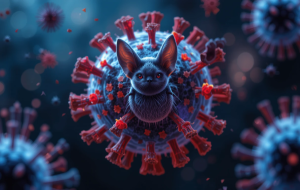Fertility Preservation for Cancer Patients: A Comprehensive Guide

Fertility Preservation for Cancer Patients: A Comprehensive Guide
Cancer treatment can have a devastating impact on fertility, both in men and women. Some treatments, such as chemotherapy and radiation therapy, can damage or destroy the reproductive organs or gametes (eggs and sperm). Other treatments, such as surgery, may remove reproductive organs altogether.
Fertility preservation is the process of saving eggs, sperm, or reproductive tissue so that a person can use them to have biological children in the future. It is a crucial option for cancer patients who want to preserve their fertility before starting treatment.
Why is fertility preservation important for cancer patients?
Fertility preservation is important for cancer patients for several reasons. First, it gives them the hope of having biological children after cancer treatment. This can be a powerful source of motivation and support during a difficult time.
Second, fertility preservation can help to improve the quality of life for cancer survivors. Many people who lose their fertility to cancer experience emotional distress, such as anxiety, depression, and guilt. Having the option to have biological children can help to mitigate these negative effects.
Finally, fertility preservation can be important for financial reasons. The cost of assisted reproductive technologies (ART), such as in vitro fertilization (IVF), can be prohibitive for some people. However, many cancer patients are eligible for insurance coverage of ART.
What are the different fertility preservation options for cancer patients?
There are a variety of fertility preservation options available to cancer patients, depending on their individual circumstances. Some of the most common options include:
- Embryo cryopreservation: This involves fertilizing eggs with sperm and then freezing the resulting embryos. Embryos can be stored frozen for many years and later thawed and transferred to the uterus to achieve pregnancy.
- Oocyte cryopreservation: This involves freezing eggs that have not yet been fertilized. Frozen eggs can be stored for many years and later thawed and fertilized with sperm to create embryos.
- Sperm cryopreservation: This involves freezing sperm. Frozen sperm can be stored for many years and later used to fertilize eggs or inseminate a partner.
- Ovarian tissue cryopreservation: This involves freezing ovarian tissue. Frozen ovarian tissue can be later transplanted back into the body to restore ovarian function and fertility.
- Testicular tissue cryopreservation: This involves freezing testicular tissue. Frozen testicular tissue can be later transplanted back into the body to restore testicular function and fertility.
How to access fertility preservation services
If you are a cancer patient and you are interested in fertility preservation, it is important to talk to your oncologist as soon as possible. Your oncologist can refer you to a fertility specialist who can discuss your options and help you to choose the best approach for you.
Fertility preservation is a crucial option for cancer patients who want to preserve their fertility before starting treatment. There are a variety of fertility preservation options available to cancer patients, depending on their individual circumstances. If you are a cancer patient and you are interested in fertility preservation, talk to your oncologist as soon as possible.






